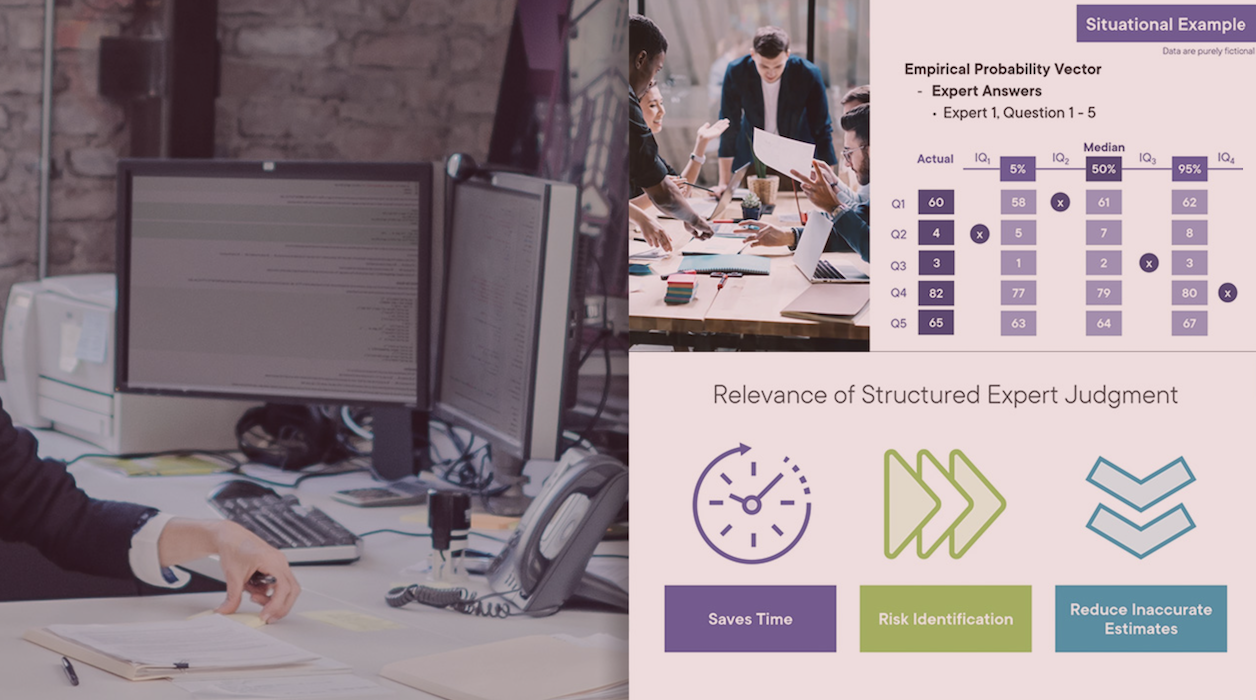- Course
Estimation Calibration: Make Your Forecasts More Reliable
This course will teach you how to do estimation calibration through Structured Expert Judgment to make your forecasts more reliable by calculating and analyzing calibration and information scores.

- Course
Estimation Calibration: Make Your Forecasts More Reliable
This course will teach you how to do estimation calibration through Structured Expert Judgment to make your forecasts more reliable by calculating and analyzing calibration and information scores.
Get started today
Access this course and other top-rated tech content with one of our business plans.
Try this course for free
Access this course and other top-rated tech content with one of our individual plans.
This course is included in the libraries shown below:
- Core Tech
What you'll learn
Managers and subject matter experts (SMEs) are faced with many challenges particularly in making reliable forecasts with minimal forecasting errors. In this course, Estimation Calibration: Make Your Forecasts More Reliable, you’ll learn to implement estimation calibration through the Structured Expert Judgment (SEJ) method by calculating calibration and information scores. First, you’ll learn what a calibration score is, and how to calculate it. Next, you’ll discover what an information score is, how it's different from the calibration score, and how to calculate it. Finally, you’ll learn how to analyze both calibration score and information score obtained from the calculation to evaluate the assessments made by experts. When you’re finished with this course, you’ll have the skills and knowledge of calculating calibration and information score under Structured Expert Judgment (SEJ) which is needed to make your forecasts more reliable through estimation calibration.
Estimation Calibration: Make Your Forecasts More Reliable
-
Structured Expert Judgment (SEJ) Definition | 4m 11s
-
Structured Expert Judgment (SEJ) Relevance | 1m 40s
-
Structured Expert Judgment (SEJ) Application | 2m 15s
-
Accuracy, Precision, and Statistical Accuracy Comparison | 6m 6s
-
Forecasting Errors | 4m 16s
-
Uncalibrated Forecast Problems | 1m 13s
-
Use Case: Identifying Forecasting Errors in Work Scenarios | 4m 46s

